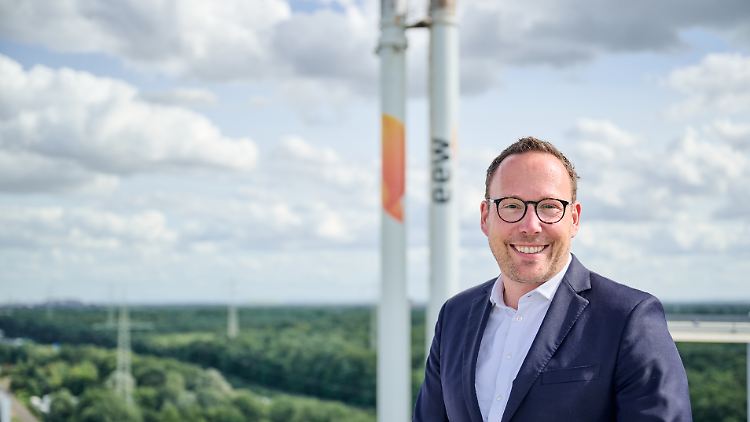Solution for the energy transition?: "Our waste generates electricity for 700,000 residents"

An employee feeds an EEW waste incineration plant.
(Photo: picture alliance/dpa)
Sun and wind can generate a lot of electricity, but sometimes very little. What do you do in these times? Timo Poppe promotes waste incineration: In the ntv podcast "So techt Deutschland," the EEW head explains why this also reduces emissions.
The energy transition is one of the most important projects for combating climate change. By 2030, 80 percent of Germany's electricity is to come from renewable energy sources, but solar and wind power are weather-dependent and can only provide electricity at certain times.
The situation is different with waste, which is constantly being generated. Timo Poppe sees the thermal recycling of waste as a pragmatic bridge to a secure energy supply: "With our plants, we produce electricity for 700,000 residents," says the head of Energy from Waste (EEW) in the ntv podcast "So techt Deutschland." "That's almost one percent of Germany."
EEW also plays a key role in district heating, for example in Hanover and Magdeburg. Its promise: green, base-load capable, and permanently available.

Timo Poppe
(Photo: EEW)
EEW doesn't see itself as an opponent of recycling; on the contrary, the company views its facilities as a complement to the waste cycle. "We are responsible for the rest of the waste," says Poppe.
The per capita amount of household waste in Germany was recently at 433 kilograms. According to the Federal Environment Agency, despite all recycling efforts, around 50 million tons of municipal waste remain each year.
Incineration can also be more beneficial for the climate than landfilling. In countries like France, Spain, or Greece, there is no ban on landfilling, says Poppe. The consequences, he says, are considerable: "What is thrown away emits a lot of methane." This methane is about "30 times worse than the emissions from waste incineration plants."
AI reduces CO2 emissionsDigitalization helps with low-emission recycling. At EEW's waste incineration plants, cameras and artificial intelligence analyze every waste drop. Hazardous objects such as gas cylinders or nitrous oxide cartridges are automatically detected and sorted out. "This wouldn't have been possible before," says Poppe. This not only protects the plants but also reduces CO2 emissions.
Despite all his successes, the EEW CEO misses honesty in the German climate debate and more pragmatism in politics. Poppe shares his wishes for political decision-makers in the new podcast episode.
Frauke Holzmeier and Andreas Laukat spoke with Timo Poppe . Listen to the full interview in the podcast "So techt Deutschland" (So techt Germany) .
In "So techt Deutschland" (So techt Germany), ntv presenters Frauke Holzmeier and Andreas Laukat ask founders, investors, politicians, and entrepreneurs how Germany is doing as a technology location.
You can find all episodes in the ntv app , on RTL+ , Amazon Music , Apple Podcasts , Spotify and in the RSS feed .
If you have questions for Frauke Holzmeier and Andreas Laukat, please email [email protected]
Source: ntv.de
ntv





